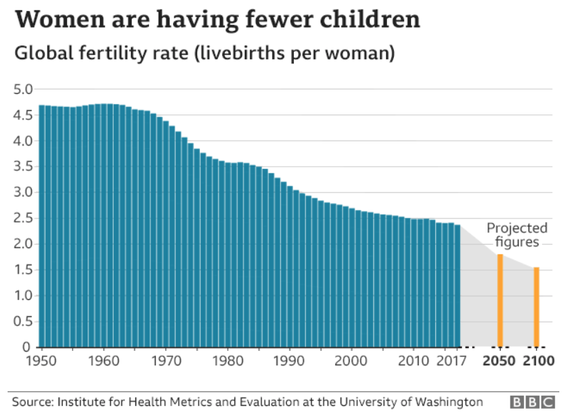|
God said to them, “Be fruitful and multiply; fill the earth and subdue it... - Genesis 1:28
THE FERMI PARADOX
Why haven't we detected an alien civilization yet? That's a big question. Scientist put forward two hypothesis: 1) The universe is stupidly enormous and we've only been seriously looking for less than a human lifespan or...2) Something wipes alien species out before they really get started. Both answers might be right, but let's talk about the second possibility, otherwise known as "The Great Filter".
The Great Filter theory, otherwise known as the Fermi Paradox, states that alien civilizations are snuffed out before they can attain significant spacefaring/galactic empire-level evolutionary levels. Otherwise, we would have detected them by now. They could be wiped out by natural events (celestial impacts, disease, volcanos, gamma ray burst, supernova, etc) or wipe themselves out (war, malicious artificial intelligence, etc). What makes this theory interesting, is that humanity might have already survived several natural Great Filter events. We also may be approaching an unexpected, and self-inflicted, Great Filter event.
THE CYCLIC CATACLYSM THEORY OF HUMAN EVOLUTION
Up until recently, mainstream historians have held the "Gradualists Theory": They believe human history is gradual, continuous evolutionary line from the Stone Age to the Space Age. This theory begs a question: If humanity reached its current evolutionary form over 300,000 years ago, but only appeared to come out of the stone age a mere 6000 years ago, what were we doing with ourselves in all the time before? No one figured out agriculture, the wheel, and metallurgy in all that time? Humans just sat on our stone age asses for over a quarter of a million years? This flies in the face of what we know about inherit human nature. Now, there is a new theory gaining traction based on emerging evidence, the Cataclysmic Theory of human civilization.
A new group of scientist, anthropologist and historians believes human history isn't a continuous line, but a series of cataclysms and restart cycles dating back tens of thousands of years. Global-level natural disasters, far more destructive than anything we've encountered in historical times, repeatedly drive our species to extinction's edge. They also wipe out all the progress we had made to that point, and reset us to a stone-age baseline. We suffer from species-level amnesia. They believe that last great event occurred at the beginning of the Holocene epoch 12,800 years ago when massive comet impacts peppered the planet, wiping out 60% of the earth's megafauna. We survived, but barely. This cyclic Cataclysm Theory of human history fits nicely in the Fermi Paradox. Humanity has essentially survived several natural Great Filter events. Now, we have advanced far enough technologically we threaten ourselves with several possible Great Filter events. Many people would agree the threat of nuclear annihilation would probably be the most feasible way humanity could wipe itself out, but there are other threats, too. Some believe man-made climate change will soon destroy us, or we will be destroyed by our own artificial intelligence. Maybe, just maybe, it is something else ushering us to our doom.
CIVILIZATION'S TWO PRIMARY RULES
I personally believe a civilization must do two things in order to survive: 1) Have children. 2) Instruct those children in the arts and sciences that made their civilization successful in the first place. I call these Civilization's Primary Rules. Break even one of these two rules and your civilization will eventually collapse. All of earth's civilizations are now breaking the first rule, and Western civilization is breaking both. Let's save the second rule for another blog post, and just focus on the first rule because it is an objective standard.
We are in the midst of a global population collapse, and it's not good. In fact, I believe we might be entering a Great Filter moment. Globally, people are having fewer children. Dropping fertility rates are happening for many reasons, which are hotly debated, but I'm going to break them down into two categories: choice and environment.
CHOICE
First, people are choosing to have fewer children or not to have any children at all. This is a global phenomenon, more pronounced in developed countries but rapidly catching up in developing countries.
In Japan, for example, the factors "include the declining marriage rate, an increase in the average age of those getting married, economic burden, childcare burden, later child-bearing, and infertility." In sub-Saharan Africa, where birthrates are still high, they are dropping rapidly. "First, an increase in the proportion of the population living in cities. City dwellers have fewer children because they live in smaller housing units, they have more of a consumer lifestyle and are less able to rely on the community than in the country. Then there is the development of women’s employment. They increasingly work in places where they cannot bring their children along with them, unlike in the field, for example. There is also improved education for girls. Educated girls have a better understanding of their rights in the area of contraception and of what that can mean for their financial and social independence. Lastly, there is the reduction in the age difference between spouses. This entails a greater sharing of modern values and therefore less of a desire to have many children." There are other factors, too. Easier access to contraception and abortion have played a role. Child-bearing age women are pursuing careers instead of family. Men are choosing not to marry as if offers fewer and fewer advantages, and higher risks to them when compared to previous generations.
Not only is choice a factor, but now there is a growing awareness that environment may play a significant role in declining male fertility. The modern world is robbing us of our ability to reproduce.
ENVIRONMENT
Recent research by a team led by Shanna H. Swan, Ph.D published a study proving a 59% drop in male sperm production since 1973. There has been a corresponding increase in miscarriage rates among women. Humans globally are becoming less able to have children at a rate of 1% per year. In Dr. Swan's (See video below) words, " Everything seems to be progressing at the same rate of deterioration for human reproductive function." Why?
This drop has happened in two generations. Dr. Swan divides environmental factors into two factors: lifestyle and chemicals. In terms of lifestyle, such factors such as obesity, smoking, binge drinking, and stress can all have a significant impact on male and female fertility. In terms of chemicals, there has been a significant increase in chemicals that influence human hormones. These human hormone "hacking" chemicals are called endocrine disrupting chemicals (EDCs). These EDCs impact the formation of testosterone and male development in utero. Phthalates, a class of WIDELY used plastics, can cause something called Phthalate Syndrome (PS), stunting male development in utero. PS has been found in humans. Women with high phthalates during pregnancy have had measurable higher rates of boys with underdeveloped genitals, which opens them up to a host of reproductive health issues and low sperm counts. Where do you find EDS? Phthalates alone are in plastics, clothing, vinyl, cosmetics, creams, scented laundry soaps, pesticides, and in any foods that are stored or pass through phthalate-containing material. Phthalates are only one class of EDCs, there are many others that permeate our environment and have varying effects on the human reproductive system. The bottom line: The ABILITY for humans to have children has dropped by 1% a year since the 1970s. This, coupled with CHOICE, has created a significantly declining birthrate for our species. Some of you might be asking, "So what?"
FEWER PEOPLE, SO WHAT?
Dr. Jordan Peterson, in the interview below, makes a point that mainstream science has been sounding the alarm of over-population since the 1960s. These dire predictions never came to pass. As early as the late 1990s, several notable voices, such as Pat Buchanan, have sounded the opposite call - a population collapse was on the way, led by the affluent western democracies.
Its possible global human population may never top 9 billion. You and I may be living through the era with the highest human population that may ever be. Imagine you're in an airplane, that has been skyrocketing at full power ever higher and higher. Then, the pilot cuts the engine. You don't immediately fall. In fact, you keep climbing, albeit at a slower and slower rate, until you hit your apogee and then begin the descent. Human population is now in that upward coast phase. Our momentum is still carrying us up, but only for a little while longer. The real issue for humanity is the engine may not restart, or at least in time to avoid disaster.
What are the implications of a global population collapse? Carefully read these excerpts below and ask yourself if any of it sounds familiar.
"A rapidly aging population means there are fewer working-age people in the economy. This leads to a supply shortage of qualified workers, making it more difficult for businesses to fill in-demand roles. An economy that cannot fill in-demand occupations faces adverse consequences, including declining productivity, higher labor costs, delayed business expansion, and reduced international competitiveness. In some instances, a supply shortage may push up wages, thereby causing wage inflation and creating a vicious cycle of price/wage spiral." - Investopedia, 2021 "Today, there are more than 46 million older adults age 65 and older living in the U.S.; by 2050, that number is expected to grow to almost 90 million." - Rural Health Information Hub, 2015 "The social and economic costs of such an abrupt change in such a historically short time are difficult to evaluate: its impact on the pension and health system, family structures, labor productivity, etc. is enormous. Japan, followed by many other countries, is heading towards a path never experienced in human history, and that appears to be full of unknowns." - Institute for Family Studies, 2017. Does this sound like the labor and supply chain disruptions we're experiencing right now in the wake of the COVID pandemic? It does. COVID, and the global lockdowns that followed, gave us a sneak peak of what we are about to endure permanently in the coming people-shortage. 1. Labor shortage - Too few working-age people. 2. Declining productivity. People in lock-down is the equivalent to large numbers of older people retiring out of workforce. 3. Supply shortages. 4. Wages and prices being pushed up (inflation). (If you expect remote working and robots to solve these problems, good luck. However, we'll save that discussion for another blog.) Too few young, productive workers and too many older people to take care of; the Great Lockdowns of 2020-2021 gave the world a sneak peek of what is waiting for us in the coming decades. Yet, this isn't the truly concerning part of this story. You know what else didn't happen during the Great COVID lockdown? There was no expected baby boom. Millions of young couples were shut up together for months on end, and yet the baby boom never materialized.
FEWER PEOPLE MEAN FEWER PEOPLE.
Fewer people mean few babies. Fewer babies mean fewer adults, which then leads to fewer babies. Simply put, this is a trend not easily reversed.
"Low birth rates and below replacement level fertility rates in the U.S. are probably here to stay for the foreseeable future." - Brookings Institute, 2021. "The U.S. fertility rate hit a record low in 2020 — just as it did in 2019, and 2018. Although the COVID-19 pandemic seems to have accelerated this decline, the drop has been underway for years. The total fertility rate — the average number of children a woman is expected to have over her lifetime — now sits at 1.64 children per woman in the U.S. Not only is this the lowest rate recorded since the government began tracking these stats in the 1930s, but it’s well below the so-called “replacement-level fertility” of about 2.1." - fivethirtyeight.com, 2021 "The problem with low fertility is that it reduces population size not at all ages but only among the young. Low fertility produces an age structure that creates a momentum for future population decline, a situation that must be stopped at some point if the population is to be demographically sustainable. Also, populations with low fertility can fall in size at an extremely rapid rate. The longer low fertility is maintained, the harder it becomes to reverse population decline. " - PBR.org, 2001. Some of the cited articles say population decline may not be a bad thing, and we can always chose to reverse the decline at some point. NONE of these articles refer to the growing research that, due to the influence of EDCs, may not be able to reverse the decline, at least not in time. Dr. Swan states EDC-driven fertility damage can be reversed in two generations. In two generations from now humanity will be in real population decline, and significantly older. This assumes no major cataclysm will significantly thin our numbers, like a real pandemic or another major world war, or a celestial impact. Mathematically, we are approaching a window, and that window is closing.
WHERE DOES THIS END?
Is humanity approaching a new chapter in the boom-bust cycle presented in the Cataclysm Theory? Could this be more than just the next iteration in the cycle, but our species actual Great Filter comeuppance? This time, are we heading for a population cataclysm, a "Children of Men" collapse driven both by choice and environment? I don't know, but I would say such a future is highly difficult to imagine given that our planet has almost 8 billion people and still climbing. I would also say, however, those that foresaw and warned about the present population declines were once mocked, and they were right.
If this is the Great Filter moment for homo sapiens, it's not too late to reverse course. Governments are slowly starting to recognize the problem, and some are shifting policy gears. Across the globe, nations are starting to look at ways to encourage child bearing, where before they actively discouraged it. Where will these efforts lead? It's too early to tell. Maybe this is our Great Filter moment, one perhaps other galactic civilizations didn't survive. They didn't blow themselves up, or were wiped out by a comet impact. Perhaps they just became too steeped in their own lives, and forgot civilization's two primary rules. They saw procreation as something to be feared and avoided, like a disease. Their ranks thinned until the light of their once thriving civilization just faded away.
The opinions expressed here are solely my own and do not represent any organization or group. If you have been triggered, you may vent and rage below in the comments section.
If you enjoyed this blog, please like the post and leave a comment or if you're feeling brave, share it on social media. This platform is my entire advertising budget and is how I share the word on my books. Also visit my Facebook, my author page and check out my fiction books here book here.
0 Comments
|
Archives
July 2023
Categories
All
|




 RSS Feed
RSS Feed